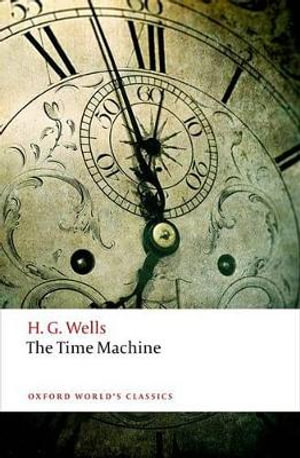“Nature never appeals to intelligence until habit and instinct are useless. There is no intelligence where there is no need of change.” â H. G. Wells, The Time Machine
“We should strive to welcome change and challenges, because they are what help us grow.” â H. G. Wells, The Time Machine
“Very simple was my explanation, and plausible enough---as most wrong theories are!” â H. G. Wells, The Time Machine
The Time Machine is a fast-paced and fun read.
The Time Machine, written in 1895 by the British author H.G. Wells, is a thought-provoking work of science fiction. The novella opens in the author’s Victorian Britain, at a dinner party hosted by the central protagonist known as “the Time Traveller.” Throughout the meal, the Time Traveller speaks to his guests about his theory that “time is simply a fourth dimension.” He then reveals that he has built a time machine, which is able to transport a person to another Time. Through pulling a lever on his machine, this Victorian scientist then finds himself on an adventure of epic proportions: he arrives in A.D 802,701 and is almost immediately immersed in the drama between the Eloi people and Morlocks.
This work is most known for popularizing the concept of time travel, particularly when enabled by a vehicle. However, the novella also reflects Wells own outspoken socialist values, and so can be read on another level.
Despite the fact that was it was first published in 1895, the story has been adapted many times. It has been turned into three feature films, two TV shows and countless comics. The huge success of this novella is because the narrative is timeless.
Written at the threshold of a new century, it continues to enthral 21st century audiences.
Hebert George Wells, known as H. G. Wells, was a British author born in 1866. He was a prolific writer, publishing works in many genres, from short stories to social commentaries. However, he is best known for his science fiction novels, leading some to call him the “father of science fiction,” or even the “Shakespeare of science fiction!” Wells is known as a futurist, meaning that much of his fiction foresaw changes that have now happened in world. Wells was a socialist and a member of the Fabian society and this political background can be found in his work.
































